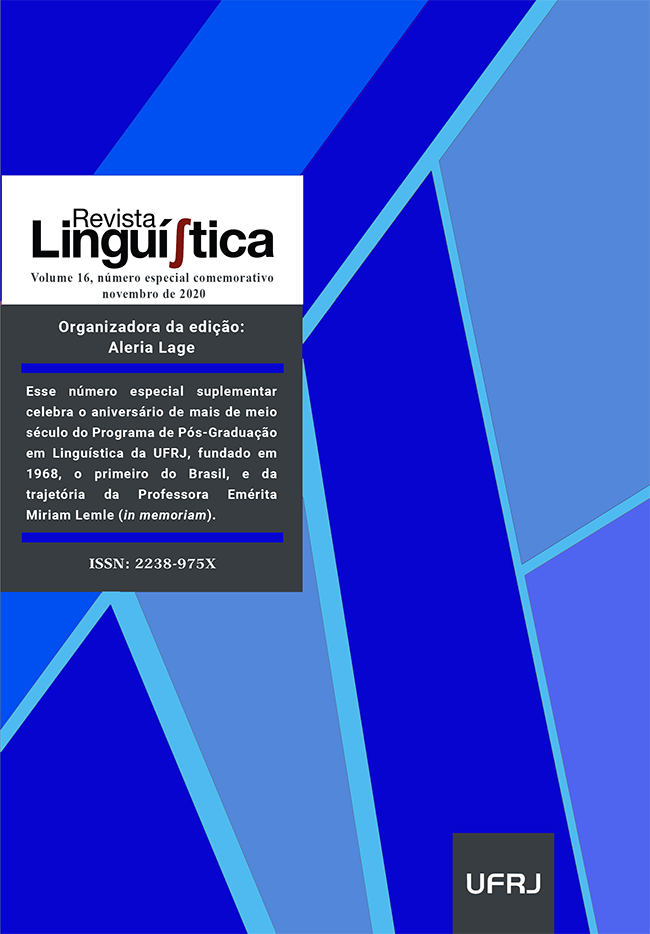Idioms and sayings: the nature of knowledges
DOI:
https://doi.org/10.31513/linguistica.2020.v16nEsp.a21904Keywords:
structure and reading, semantic and morality readings, linguistic knowledge and wisdom.Abstract
Proverbs and idiomatic expressions resemble themselves as being composed of sentences whose literal reading is not intended. The omission of the agent in the languages allows the semantic reading of the verbal phrase, but the same operation totally destroys the nature of proverbs. Moreover, in proverbs, the extralinguistic intent of counseling or moral valuation is an integral part of meaning. It is surprising how moral similarity can be expressed through morphosyntactic structures and lexical fills whose literal translation may be very diverse, but obeys a universal pattern structured with a logic, also universal, that resembles Universal Grammar. In this work, we assume a modular theory of mind: the meaning of an idiomatic expression and the judgment of a type of behavior present in proverbs come from different modules.
Downloads
Published
Issue
Section
License
Authors who publish in the Revista Linguí∫tica agree with the following terms:
The authors maintain their rights, ceding to the journal the right to first publication of the article, simultaneously submitted to a Creative Commons license permitting the sharing with third-parties of published content as long as it mentions the author and its first publication in the Revista Linguí∫tica.
Authors may enter into additional agreements for the non-exclusive distribution of their published work (for example, posting in online institutional or non-profit repositories, or book chapters) so long as they acknowledge its initial publication in the Revista Linguí∫tica.

The journal Revista Linguí∫tica is published by the Post-Graduate program in Linguistics of UFRJ and employs a Creative Commons - Attribution-NonCommercial 4.0 International (CC-BY-NC).









